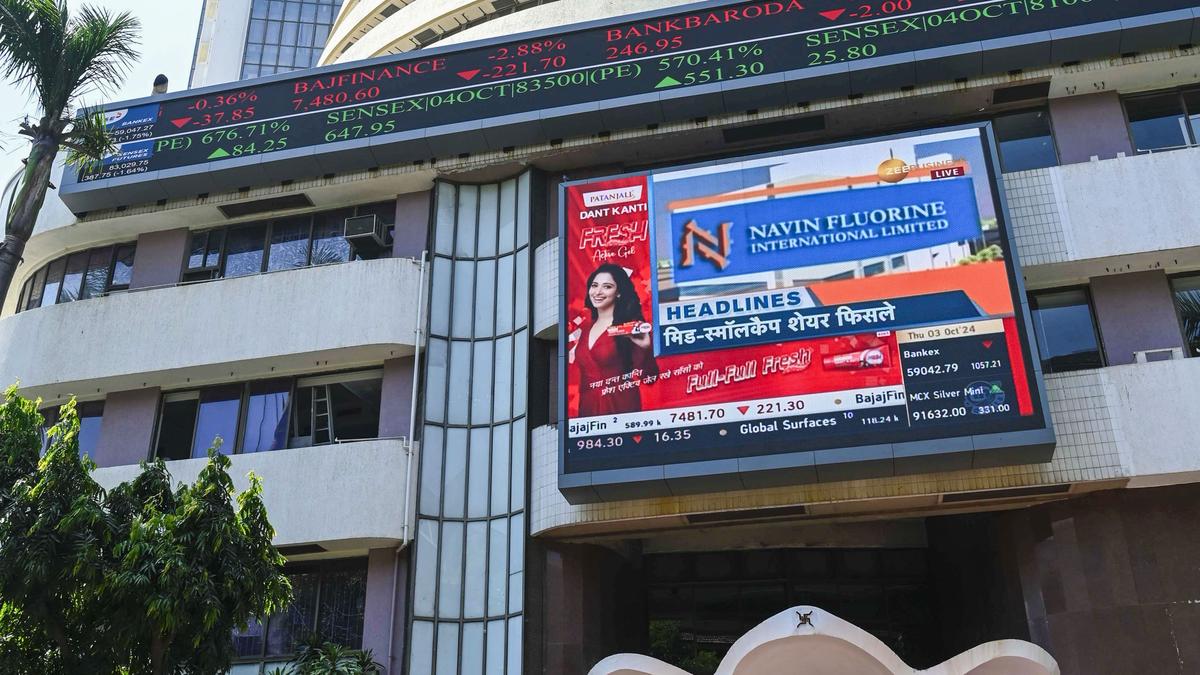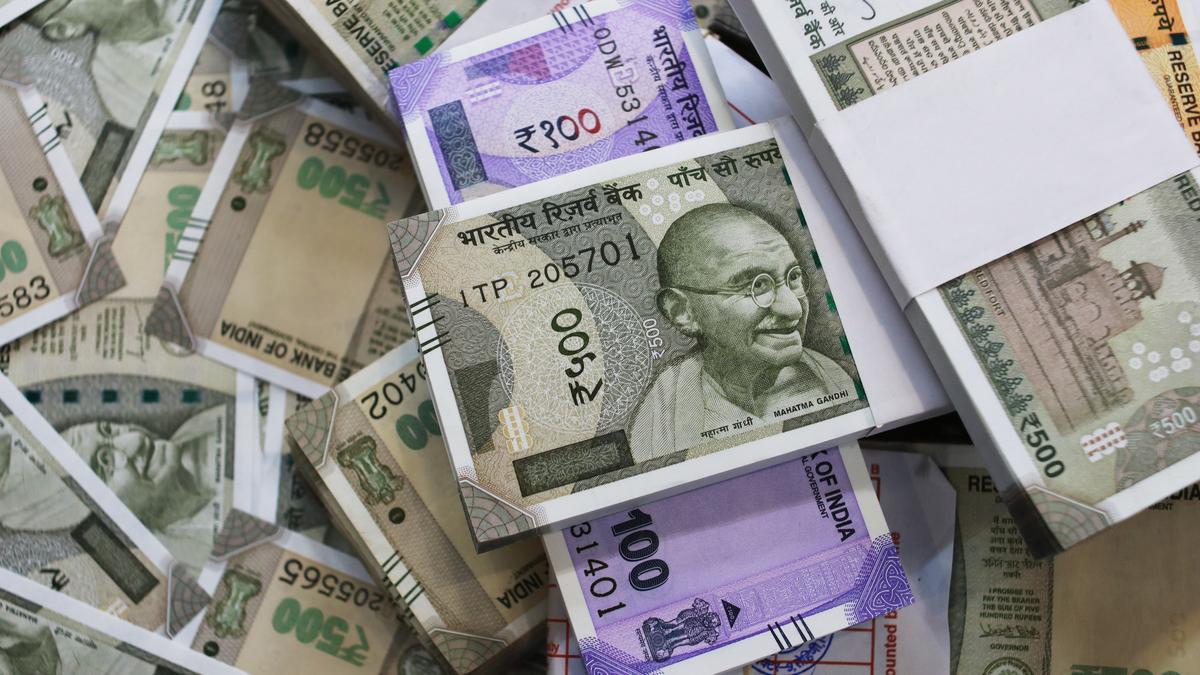Image used for representative purpose only
| Photo Credit: Reuters
The rupee fell 4 paise to all-time low of 84.76 against the U.S. dollar in early trade on Tuesday, as the strength of the American currency in the overseas market and unabated foreign portfolio outflows dented investor sentiments.
Forex traders said the depreciation in rupee was largely on the back of Donald Trump’s rhetoric on BRICs currency, political instability in the Eurozone, weaker domestic macroeconomic indicators and unabated foreign portfolio outflows.
President-elect Donald Trump on Saturday threatened a 100% tariff on the BRIC bloc of nations if they act to undermine the U.S. dollar.
Moreover, market participants are also awaiting cues from the upcoming RBI monetary policy on December 6, which will likely focus on balancing inflation and growth.
At the interbank foreign exchange, the rupee opened at 84.75 and moved in a tight range and touched all-time low of 84.76 against the greenback, registering a fall of 4 paise over its previous close.
On Monday, the rupee depreciated 12 paise to close at an all-time low of 84.72 against the U.S. dollar.
The dollar index, which gauges the greenback’s strength against a basket of six currencies, was trading higher by 0.07% at 106.51.
Brent crude, the global oil benchmark, rose by 0.18% to $71.96 per barrel in futures trade.
Meanwhile, Minister of State for Finance Pankaj Chaudhary on Monday said in Parliament that the rupee remains one of the best-performing Asian currencies despite geopolitical tensions in the Middle East and other headwinds, indicating India’s sound economic fundamentals.
One of the main reasons for the depreciation of INR has been the broad-based strength of the USD, he said.
“During CY 2024, Dollar Index has increased by about 4.8% till November 19, 2024. More recently, the Dollar Index touched 108.07 on November 22, 2024, its highest in more than a year, exerting pressure on emerging market currencies,” he said.
Further, geopolitical tensions in the Middle East and uncertainty surrounding US elections results also added to the headwinds.
The depreciation of a currency is likely to enhance export competitiveness, which in turn impacts the economy positively. On the other hand, depreciation may raise the prices of imported goods.
He further said, the RBI monitors key developments across the globe which may have an impact on USD-INR exchange rate.
On the domestic equity market front, the 30-share benchmark index Sensex was trading 192.33 points, or 0.24% higher, at 80,440.41 points. The Nifty rose 53.10 points, or 0.22%, to 24,329.15 points.
Traders said the persistent selling pressure by foreign funds added further strain on the currency. Foreign Institutional Investors (FIIs) were net sellers in the capital markets on Monday, as they offloaded shares worth ₹238.28 crore, according to exchange data.
Published – December 03, 2024 11:05 am IST



